This seeks to investigate the individuation of ecological systems and attribution of function to their components as a ground for intrinsic purposiveness, applying the theoretical outcomes to analyze whether ecosystem health and distress or disruption are justifiable concepts, as well as whether intrinsic value can be ascribed to ecological systems. In particular, it will apply an organizational account of ecological functions to understand intrinsic purposiveness in ecological systems and derive principled criteria for identifying functional groups and traits and justifying (or not) judgments of normal and pathological functioning in ecosystems as well as intrinsic value ascription to such systems. Key outputs of this work will be practical diagnostic tools for individuating ecological systems and ascribing functions to their parts, and a philosophical basis to justify or reject health-related metaphors for establishing goals in environmental management as well as ascriptions of intrinsic value to ecological systems.
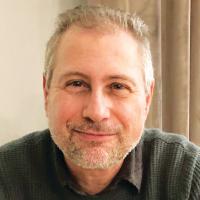
Charbel El-Hani
Higher-Level Agency and Directionality in Ecology and Earth Science
An organizational account of ecological functions
Subaward Principal Investigator
Federal University of Bahia (UFBA)
Charbel N. El-Hani is full professor in the Institute of Biology, Federal University of Bahia, Brazil. Coordinator of the History, Philosophy, and Biology Teaching Lab (LEFHBio) and the National Institute of Science and Technology in Interdisciplinary and Transdisciplinary Studies in Ecology and Evolution (INCT IN-TREE). Between January 2020 and July 2021, he was visiting researcher at the Centre for Social Studies, University of Coimbra, Portugal. He works in the areas of philosophy of biology, ecology, ethnobiology and science education research.
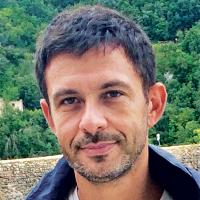
Matteo Mossio
Agency and Directionality in Development, Evolutionary Origins and Transitions of Agency, Higher-Level Agency and Directionality in Ecology and Earth Science
An organizational account of ecological functions, Intrinsic purposiveness and the shaping of development, Integration and individuation in the origin of agency, Open-ended evolution and organizational closure
Matteo Mossio is Chargé de recherche (tenured) at the Centre National de la Recherche Scientifique (CNRS), full member of the IHPST (https://ihpst.pantheonsorbonne.fr/), Paris, France. Matteo Mossio works mainly in philosophical and theoretical issues related to biological autonomy. He published several articles in international philosophical and scientific journals as well as chapters in collective volumes. In 2015, he published (together with Alvaro Moreno) a full monograph on the theory of autonomy (https://www.springer.com/gp/book/9789401798365). Matteo Mossio obtained funding for and took part in numerous research projects in France and abroad. He attended or organised over 90 national and international seminars, workshops, symposia and summer schools, and served as a reviewer for many international philosophical and scientific journals. He supervised several PhD and Master students. He regularly teaches in the Philosophy Program of the University of Paris 1 Panthéon – Sorbonne.
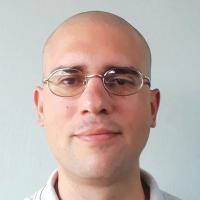
Nei Nunes-Neto
Higher-Level Agency and Directionality in Ecology and Earth Science
An organizational account of ecological functions
Federal University of Grande Dourados, Brazil
I am Associate Professor of Epistemology of Science and Science Education at the School of Biological and Environmental Sciences, Federal University of Grande Dourados (UFGD), Brazil. I am affiliated to the Graduate Studies Program in History, Philosophy, and Science Teaching (Federal University of Bahia and State University of Feira de Santana). My research interests are in science education research, philosophy of biology and ethics. Also, I'm a researcher of the National Institute of Science and Technology in Interdisciplinary and Transdisciplinary Studies in Ecology and Evolution (INCT IN-TREE), funded by the Brazilian agencies CNPq and CAPES, and gathering 200 researchers from different fields.
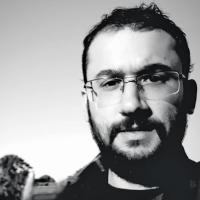
Claudio Reis
Higher-Level Agency and Directionality in Ecology and Earth Science
An organizational account of ecological functions
Claudio Ricardo Martins dos Reis is Associate Professor of History and Philosophy of Biology at the Institute of Biology, Federal University of Bahia, Brazil. Member of the History, Philosophy, and Biology Teaching Lab (LEFHBio) and the National Institute of Science and Technology in Interdisciplinary and Transdisciplinary Studies in Ecology and Evolution (INCT IN-TREE). He works in the areas of philosophy of science, especially of biology, and the areas of ecology and science education research.
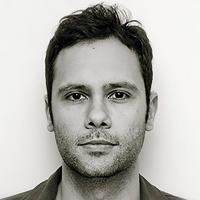
Emiliano Sfara
Higher-Level Agency and Directionality in Ecology and Earth Science
An organizational account of ecological functions
I’m an Italian postdoctoral researcher at the University of São Paulo, Brazil, since 2018. My main research interests focus on the influences of Kant’s ideas of organism in Georges Canguilhem’s philosophy of medicine and biology. The theoretical interconnections between philosophy of science, philosophy of action and philosophy of artistic creation in Canguilhem’s thought oriented my previous doctoral and postdoctoral investigations in France (IHPST of Paris, Université Montpellier 3), Italy (Università della Calabria) and Canada (CIRST, Université du Québec à Montréal). The application, from an organizational perspective, of the concepts of normal and pathological to ecosystems will be one of the most relevant research topics for me in the years to come.
